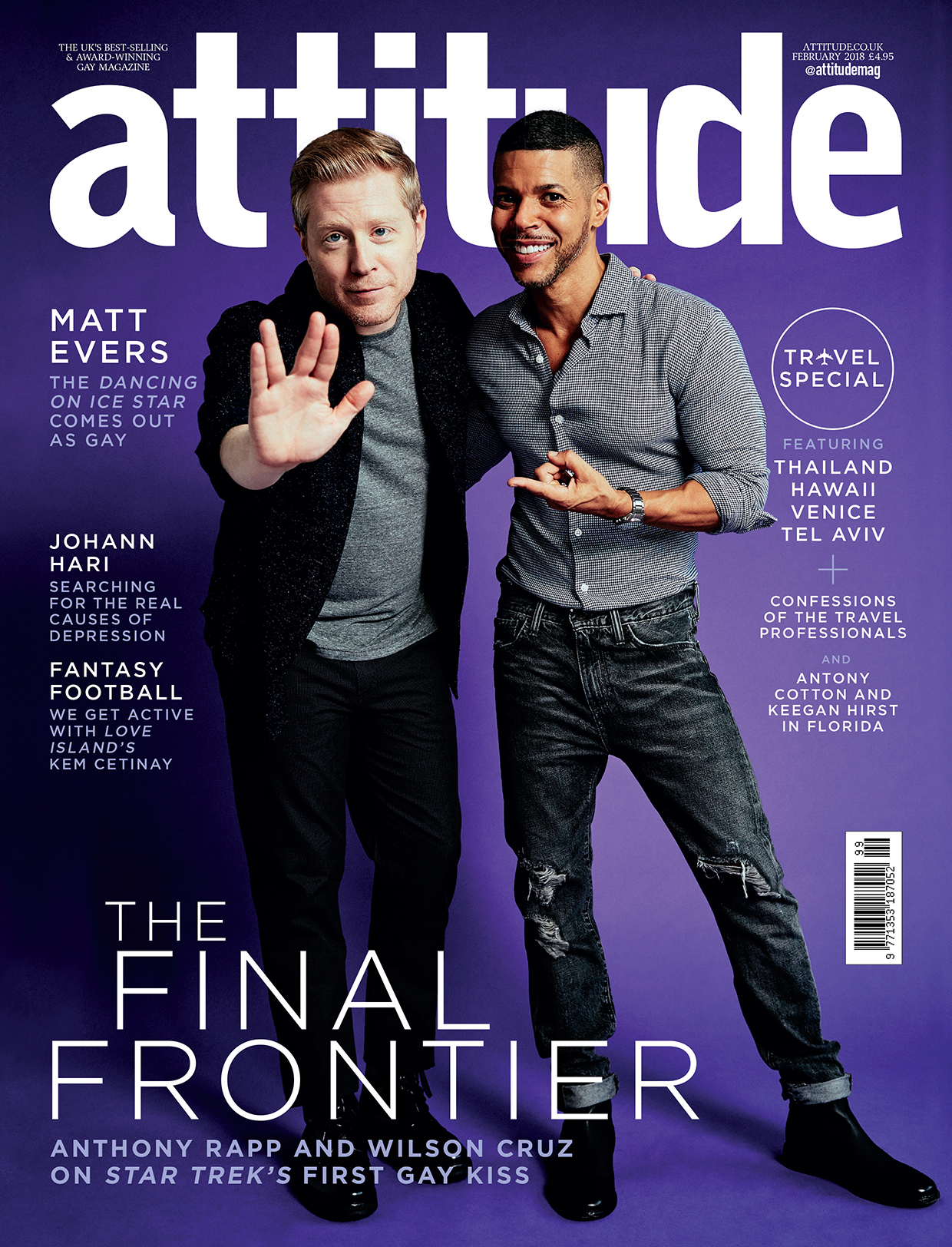Star Trek: Discovery’s Wilson Cruz talks gays on TV, being out in Hollywood and THAT shock plot twist
The star of our February issue talks the future of Dr Hugh Culber and LGBT representation on screen.
By Will Stroude
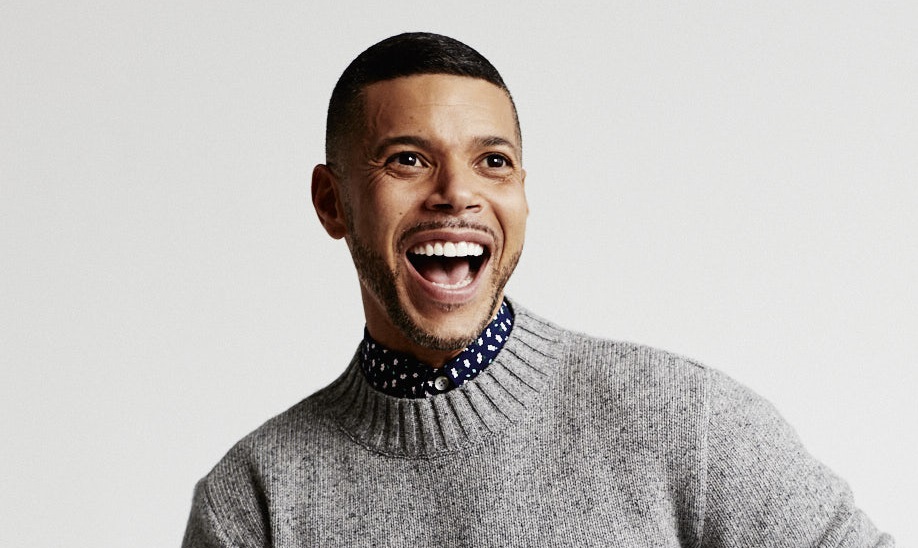
22 years ago, Wilson Cruz and Anthony Rapp were two young, up-and-coming gay actors who both found themselves appearing Broadway production of Rent.
As they separately names for themselves in an industry where being open about your sexuality in public was still almost unheard of, they would strike up a firm friendship.
Fast-forward two decades and the pair find themselves playing on of TV most-talked about couples on one of the most iconic franchises of all time in Netflix/CBS’s Star Trek: Discovery.
The incluison of Dr. Hugh Culber (Cruz) and Lt. Paul Stamets has seen the first ever man-on-man kiss in Star Trek’s history, and for Cruz, who rose to fame as the first openly gay man to play an openly gay character on a mainstream US TV series in ’90s teen drama My So-Called Life, it’s another landmark moment that will define not just his own career, but the lives of many of those watching at home.
Anthony and Wilson talk at length about just what their onscreen relationship means in our February issue – available to download and in shops now – but we caught up again with Wilson following (SPOILER ALERT!) Dr. Culber’s apparent demise at the hands of a treacherous crewmate to find out more about the future of both the doctor and wider LGBT representation on screen…
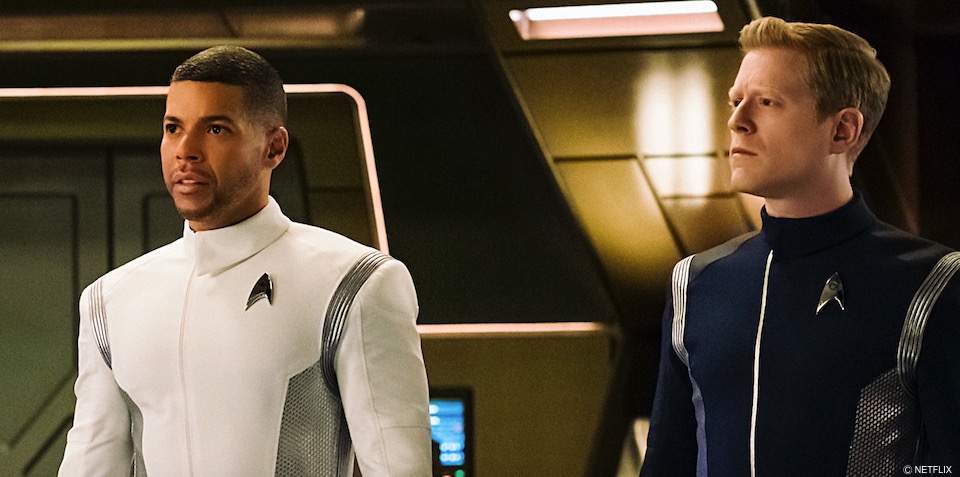
So it must have been a busy few weeks…
That’s the understatement of the week! It’s been intense, but it’s also been really fun to engage with the fans and ease their concerns a bit. But also fun to hear all their ideas about how this is all going to play out. It’s really amazing how it’s taken off.
How’s the reaction been to Dr Culber’s shock death from you perspective?
I think it’s been overwhelmingly positive. I think people understand that we’re taking them on a long journey, and part of that journey will consist of glory and disappointment and triumph and devastation. That’s part for the fun of watching a show right? I’m trying to tell people that this is a paragraph in the first chapter of a long epic journey, and this was a necessary step for us to take in order to go where we want to go.
Obviously the TV trope of killing off LGBT+ and ethnic minority characters is well-documented – was that a concern to you when you first found out about the twist?
Hmm… I was concerned having been an activist so long, but I also have real trust in our producers and writers that they know what they’re doing, and I know how much they value this relationship. I just couldn’t imagine this being the end. Was I worried when I first read it? Absolutely. Because I didn’t know where we were headed. But when I sat down with Aaron and Gretchen and they fleshed out their concept, I was onboard with it 100 percent. But I can’t sit here and say I wasn’t dreading the initial reaction once the episode hit. But we had an opportunity here to see this couple go through what heterosexual couples have been going through on TV for decades!
You’ve also promised that we’ve not seen the last of Dr Culber…
I can say that we will see Dr Culber soon and that he plays a pivotal role in where the story goes form here. In the end, these two characters, this gay couple, will he heroes in many ways, just like everyone on this crew. I can’t remember a time where we’ve had a relationship that’s not only loving and exciting to watch as a couple, but also heroic in their own right and part of the real fabric of the story we’re trying to tell.
You made headlines after the show began airing last year after writing an very eloquent riposte to homophobes unhappy about Culber and Stamets’ relationship. Has that negativity got worse or better over the course of season one’s run?
You know I try not to focus too much on the trolls and the negativity. In the begin there was some negativity and I decided to address it once and only once. I would rather focus on the people who are excited by this couple and feel represented by them. Are there people who can’t deal with LGBT people and can’t watch the show because of ti? Sure. We wish them well.
When Star Trek launched half a century ago it was well ahead of the curve when it came to diversity, but we’re only just having the first gay male couple on the show. As someone who made history playing an openly gay teenage on My So Called Life in the ‘90s and is still making gay TV firsts in 2018, do you think the journey we’re on has been too slow?
Well I’m also producing this six-part documentary series about the history of LGBT images on television, so I’ve been studying this topic for a long time. If we really want to be honest the way that LGBT characters have been portrayed – and the number of LGBT characters – has grown so quickly it’s almost been lightning speed in many ways. I think we can take satisfaction in the fact that the LGBT community has been so vocal and visible that we’re been able to make great strides in a very short amount of time. That being said, there’s still a lot of work to do in terms of the diversity of those characters. The number of them has gone up, but what they look like and who they represent, for the most part, is gay white men. I think we’re starting to see a real change in that way. I think there’s a lot to celebrate and a lot to continue to work on.
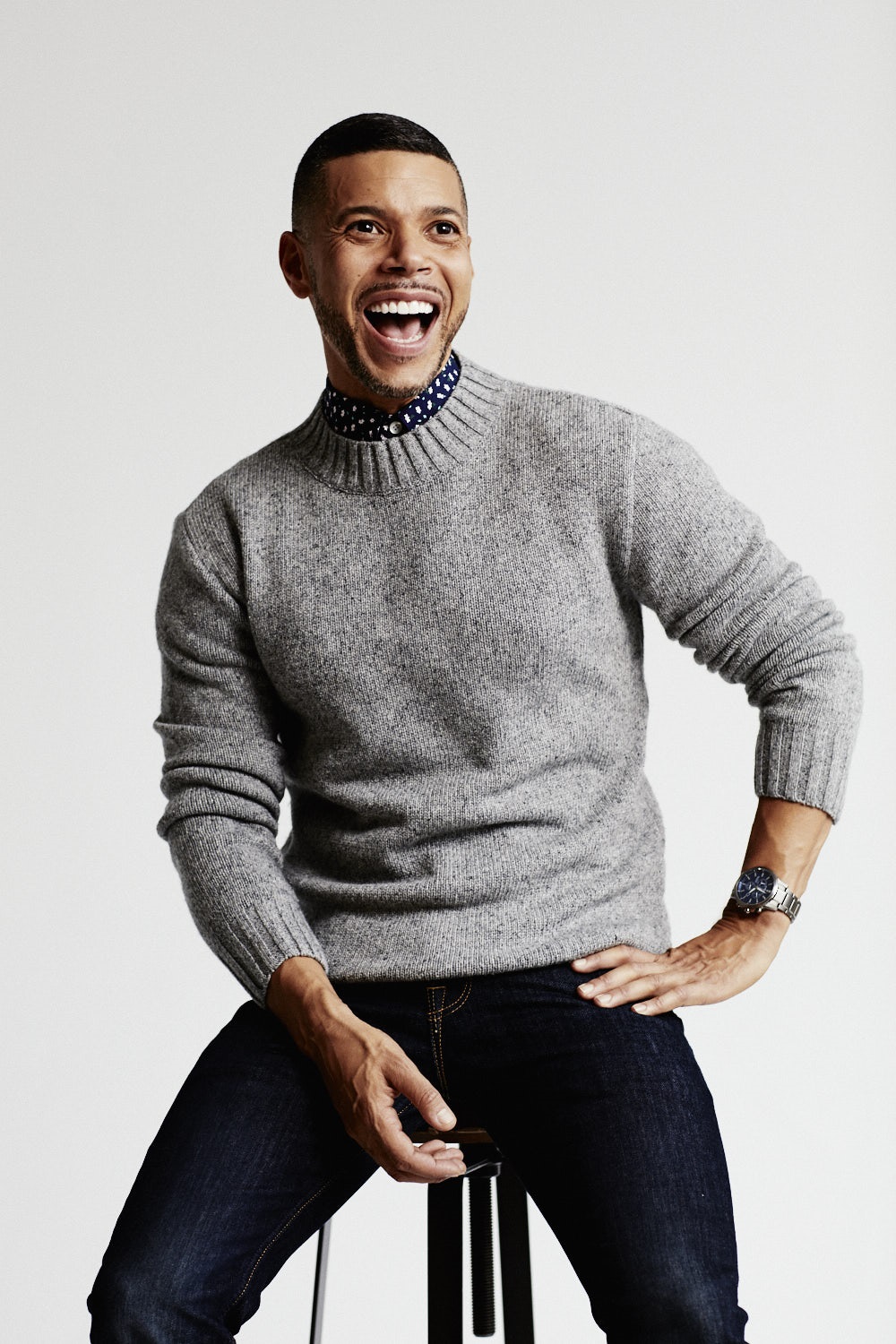
Obviously you and Anthony are both openly gay: do you think it’s important those roles go to gay actors?
It’s really complicated. I think on a personal level I know what I bring to the character because of my own personal experience. It’s a shorter distance for me when I play a gay character for me to travel as an actor, and so I spend more of my time fleshing out other parts of who these people are. I’m not overly concerned with trying to understand their sexuality because, duh, I understand it. But at the same time I don’t think that a straight actor does a lesser job. You know, I’m obsessed with Call Me By Your name right now, and that’s two straight men that did a beautiful job. Would it have been different if they’d been played by a gay actor? Maybe. But I don’t know.
What I hope for is that every LGBTQ actor out there is given the same opportunity as anybody else. The fact is sometimes gay actors aren’t given those roles for reasons that have nothing to do with their talent. I want to see LGBTQ actors who are given the opportunity to headline, to be lead actors, to open a movie. And that only happens when we give them the opportunity. I think there’s a ways to go.
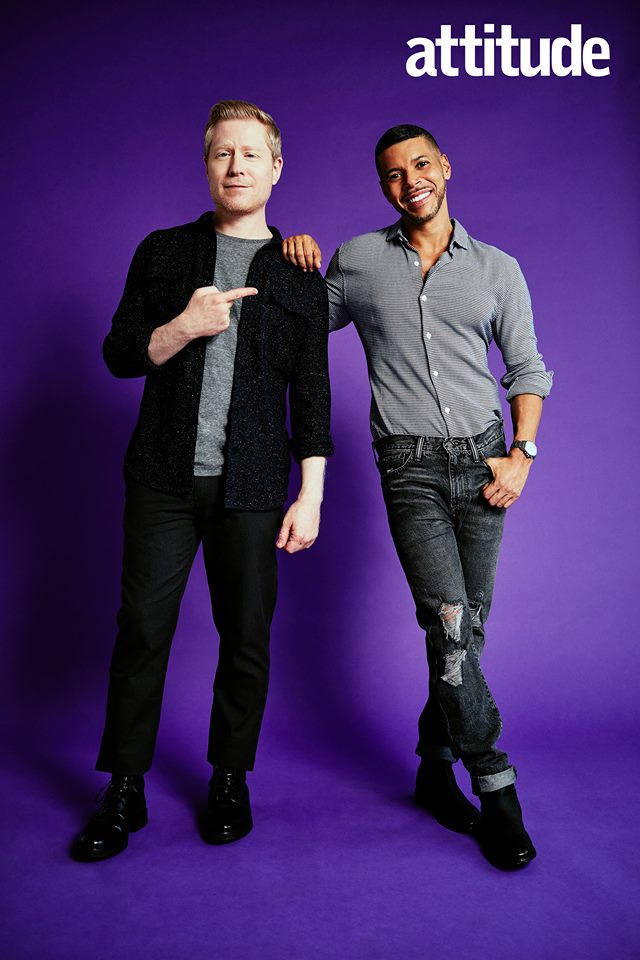
You’re in a fairly unique position as an actor who’s been out since the very start of your career. Do you feel like it’s something that’s defined it?
The way I look at it is I’ve been incredibly fortunate. When I first came out, I was playing a teenager, I was 21 years old, and the reaction to me was really positive. I think creative people were looking for someone who’d take on these roles, and at that moment I was available – and not only available but wanted to tell those stories. That was the way it affected me. I’d love to see someone able to come out and still be a leading man or woman, and have it be a non-issue – and I think that day is coming.
You can read the the full exclusive interview with Star Trek: Discovery’s Wilson Cruz and Anthony Rapp in the February issue of Attitude – out now. Buy in print, subscribe or download.
Accompanying the issue is our Great British Escape travel brochure, in association with Hertz, which you can also download for free.
